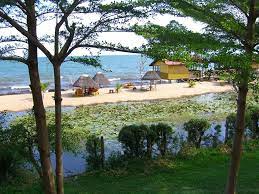
Burundi Travel Vaccines and Advice
The tiny African country of Burundi recently went through sad decades marked by a civil war and deadly ethnic conflicts between Hutu and Tutsi people. This extremely poor country is now slowly recovering and deserves to be discovered by travelers. Burundi is located in the Great Lakes region of Southeast Africa, next to Rwanda and Tanzania. Though Burundi is landlocked, its Southwest border lies along the huge Lake Tanganyika and several pleasant sandy beaches can be found there. Burundi hides some sublime natural wonders, like National Parks home to hippopotamuses and antelopes, and stunning green landscapes of tea fields fringed by dense ancient forests.
HEALTH INFORMATION FOR BURUNDI
We make every effort to ensure that the information posted on our website is up to date and accurate according to the latest public health recommendations; however, it is impossible for us to make changes on a daily basis.
For the most current travel health recommendations, please call our clinic as make an appointment with one of our travel health professionals.
BURUNDI – RECOMMENDED VACCINES
| Hepatitis A | Recommended for all travelers. |
| Hepatitis B | Recommended for all travelers. |
| Causes, Symptoms & Treatment – Typhoid fever | Recommended for all travelers. |
| Tetanus – Diphteria – Pertussis Vaccine | Tetanus: In exceptional circumstances (eg, stay in a region where access to health care is limited), for a person aged 18 years or older, 1 dose of DT may be given if 5 years or more has elapsed since the last dose. Otherwise, one booster dose at the age of 50*.
Pertussis (Whooping Cough): 1 dose is recommended for pregnant women, for every pregnancy, regardless of immunization history and the interval since the last dose (betwen week 26 and 32). *Only applicable for Quebec. |
| Polio | One-time booster recommended for any adult traveler who completed the childhood series but never had polio vaccine as an adult (after 18 years old only). |
| Measles – Rubella – Mumps | Two doses recommended for all travelers born after 1970, if not previously given. |
| The Yellow Fever Vaccine |
A proof of vaccination against yellow fever may be required upon entry in to this country. Some travellers may not be eligible to receive this vaccine. Please enquire with your health care professional regarding your specific details. For further information, please consult with the World Health Organization (WHO) website: |
| Meningitis | Recommended for all travellers during the season(s). Consider immunization for specific groups or itineraries outside the dry season |
| Flu – Influenza | Seasonal influenza occurs worldwide. The flu season usually runs from November to April in the northern hemisphere, between April and October in the southern hemisphere and year round in the tropics. Influenza (flu) is caused by a virus spread from person to person through coughing and sneezing or by touching infected surfaces. Everyone 6 months and older should get a flu vaccine yearly. Vaccine is recommended 14 days prior to departure. |
| Routine vaccines (dCaT, Polio, Meningococcal, Shingles, Pneumococcal, Hepatitis B, HPV, MMR & Varicella) | Recommended for all travelers |
| African Tick Bite Fever | Presence. All travellers should protect themselves against tick bites. |
| Transmission, Symptoms and Prevention – Rabies | For travelers at high risk of animal bites or being involved in activities with bats, dogs and other mammals. Clients who plan to visit remote areas may consider receiving this vaccine. Important to note the pre-exposure rabies vaccine is administered in 2 doses with one week interval between doses. Post-exposure vaccination is always recommended, even for those previously vaccinated. |
| Schistosomiasis | Avoid swimming in fresh water. |
| Turista – Traveler’s Diarrhea (ETEC) | Talk to your health care professional about the risks and precautionary measures to take, as well as the Dukoral® vaccine. Important to note that the Dukoral vaccine is an oral vaccine given in 2 doses, recommended at least 2 weeks prior to departure. |
| Malaria | Malaria is present in this country. The risk may be region specific. Prophylaxis measures to be discussed with the health care professional. |
| Cholera | Recommended for humanitarian workers, health care providers and/or adults who are traveling to areas of active cholera transmission. |
| Dengue Fever, Chikungunya and/or Zika | There are many illnesses that are transmitted via mosquito bites and unfortunately we do not have vaccines to protect us against most of them. It is important to inquire with your healthcare professional regarding the specific risks and the different illnesses presently in circulation. |
RECOMMENDED MEDICATION FOR TRAVELLING TO BURUNDI
| Antimalarials Recommended | Malarone, Doxycycline or Mefloquine |
| Acetazolamide/Dexaméthasone | Recommended to prevent Acute mountain sickness (AMS). |
| Antibiotics Traveler’s Diarrhea | Azithromycin or Suprax |
MEDICAL CARE IN BURUNDI
Burundi is the worst country in Eastern Africa regarding health care quality. The shortage of basic medicines, a very weak health information system, a severe lack of medical equipment and unqualified medical professionals are characterizing the country. The main medical center in Burundi is the Prince Regent Charles Hospital, located in Bujumbura, the capital city. The Seventh Day Adventists Clinic can also be quoted. But don’t expect good quality care.
Emergency and ambulance services are inefficient in the country.
Access to medicines is very bad in Burundi. It is strongly advised that you bring a complete first aid kit and all the specific treatments you could need.
SECURITY ABROAD
Border security is a concern in the provinces of Bubanza and Cibitoke due to the various violent clashes in eastern Democratic Republic of Congo and occasional cross-border movement by armed groups.
CANADIAN EMBASSY
Emergency services
There is no centralized number to reach emergency services.
Dial:
- 112 for medical assistance
- 113 for police
